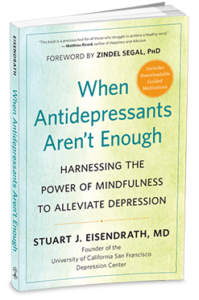We all have issues that produce stress in our lives. They may include relationships, finances, work, or internal states such as anxiety and depression or our health. Then there are more global issues like the Covid-19 pandemic or our nation’s political strife. Whatever issues you are aware of for yourself, there is a good bet that the level of self compassion you have is playing a factor in amplifying or reducing your attitudes about your problems. This is important because our attitudes about our life problems is a major determinant of how much stress we experience. As the ancient philosopher Epictetus wrote, “It is not the things themselves that bother us, it is our attitude about them that does”. For example, having financial problems during the pandemic is a burden in reality, but if our attitude about it is that we are a personal failure, then we increase our suffering.
I like to think that much of our attitude about ourselves is determined by self-compassion. According to leading researcher on self-compassion, Kristin Neff, there are three elements of self-compassion. The first is a sense of common humanity. In the foregoing example, if we bring self-compassion to the issues of financial problems, we might say to ourselves that we are suffering problems due to the pandemic just like millions of others in the world. This highlights the role of common humanity in self-compassion. If we see ourselves in self-isolation, as different from everyone else, our suffering increases. If we see ourselves just like many others, our sense of commonality with the general human experience grows and our sense of isolation and shame diminishes.
The second element of self-compassion is self-kindness, which stands in contrast to self-criticism. Neff points out that we are typically much more likely to be compassionate to others than to ourselves. If we can treat ourselves like we would treat a good friend who is suffering, we can shift our stance beneficially. For example, instead of being critical of ourselves when we are suffering depression, to being compassionate, we might say “sorry you are experiencing this, but it doesn’t mean you are a weak person—in fact, 300 million people in the world suffer depression every day”. On a simpler level, if your mind wanders while you are trying to meditate, it does not mean you are a failure. Your mind is just doing what minds do—wandering from time to time.
This brings me to the third element of self-compassion: having a mindfulness approach to your experiences. This means having the ability to view your thoughts and feelings from some distance instead of overidentifying with them. Overidentification leads to the tendency to accept negative aspects of oneself as a proven fact. For example, I am overidentifying when I think I am a bad person and accept that judgment as true, but I am mindful when I see it as just another thought that may or may not be a fact. Overidentification with negative thoughts is a common symptom of depression. Viewing your thoughts as mental events—not as proven facts—allows you to have distance from them.
[1] K. Neff and C. Germer, The Mindful Self-Compassion Workbook: A Proven Way to Accept Yourself, Build Inner Strength, and Thrive (New York: Guilford Press, 2018).
